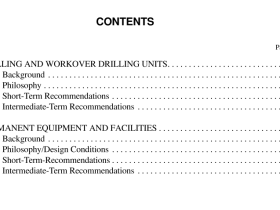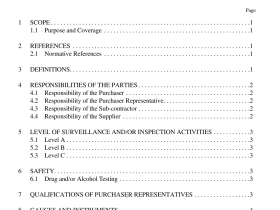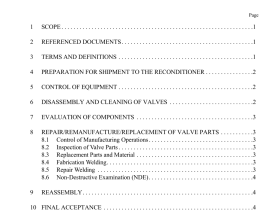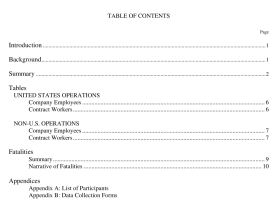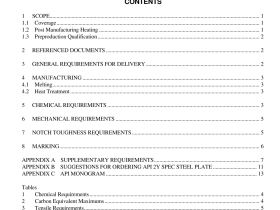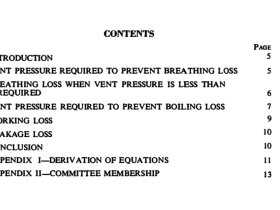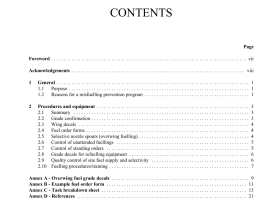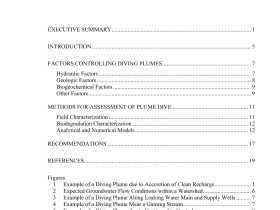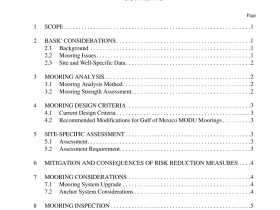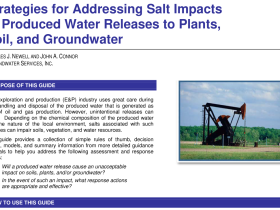API SPEC 14A pdf download
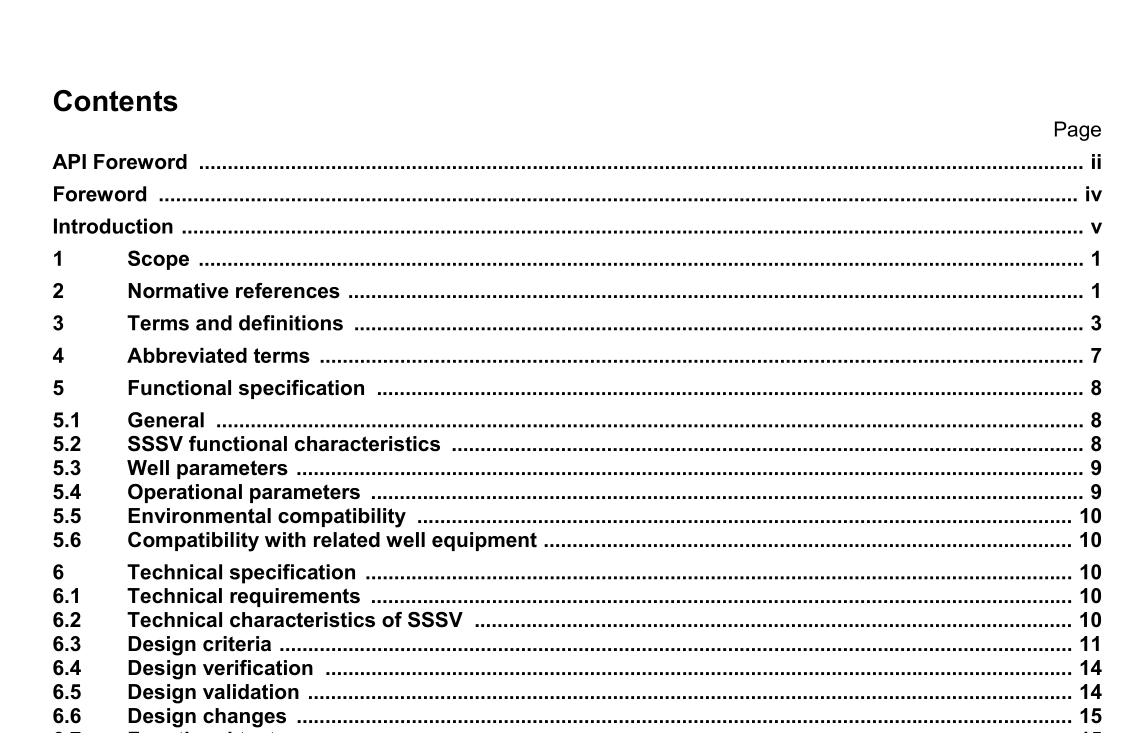
API SPEC 14A pdf download.Petroleum and natural gas industries — Downhole equipment — Subsurface safety valve equipment
3 Terms and definitions
For the purposes of this document, the terms and definitions given in ISO 9000:2000 and the following apply. 3.1 bean orifice designed restriction causing the pressure drop in velocity-type SSCSVs 3.2 design acceptance criteria defined limits placed on characteristics of materials, products, or services established by the organization, customer, and/or applicable specifications to achieve conformity to the product design [ISO/TS 29001:2003] 3.3 design validation process of proving a design by testing to demonstrate conformity of the product to design requirements [ISO/TS 29001:2003] 3.4 design verification process of examining the result of a given design or development activity to determine conformity with specified requirements [ISO/TS 29001:2003] 3.5 end connection thread or other mechanism providing equipment-to-tubular interface 3.6 environment set of conditions to which the product is exposed 5) BSI, Customer Services, 389 Chiswick High Road, London W4 4AL, UK. 6) SAE International, 400 Commonwealth Drive, Warrendale, PA 15096-0001, USA.3.7 failure any equipment condition that prevents it from performing to the requirements of the functional specification 3.8 fit geometric relationship between parts NOTE This includes the tolerance criteria used during the design of a part and its mating parts, including seals. 3.9 form essential shape of a product including all its component parts 3.10 function operation of a product during service 3.11 functional test test performed to confirm proper operation of equipment 3.12 heat treatment heat treating alternate steps of controlled heating and cooling of materials for the purpose of changing mechanical properties 3.13 interchangeable conforming in every detail, within specified tolerances, to both fit and function of a safe design but not necessarily to the form 3.14 manufacturer principal agent in the design, fabrication and furnishing of equipment, who chooses to comply with this International Standard 3.15 manufacturing process and action performed by an equipment supplier/manufacturer that are necessary to provide finished component(s), assembly(ies) and related documentation, that fulfil the requests of the user/purchaser and meet the standards of the supplier/manufacturer NOTE Manufacturing begins when the supplier/manufacturer receives the order and is completed at the moment the component(s), assembly(ies) and related documentation are surrendered to a transportation provider. [ISO 16070] 3.16 mass loss corrosion weight loss corrosion (deprecated term) loss of metal in areas exposed to fluids which contain water or brine and carbon dioxide (CO 2 ), oxygen (O 2 ) or other corrosive agents NOTE The term “weight” is commonly incorrectly used to mean mass, but this practice is deprecated.3.17 model SSSV equipment with unique components and operating characteristics which differentiate it from other SSSV equipment of the same type NOTE The same model can have any of a variety of end connections. 3.18 operating manual publication issued by the manufacturer which contains detailed data and instructions related to the design, installation, operation and maintenance of equipment 3.19 profile feature that is designed for the reception of a locking mechanism 3.20 proof test test specified by the manufacturer which is performed to verify that the SSSV meets those requirements of the technical specification which are relevant to the validation testing performance 3.21 qualified part part manufactured under a recognized quality assurance programme and, in the case of replacement, produced to meet or exceed the performance of the original part produced by the original equipment manufacturer (OEM) NOTE ISO 9001 is an example of a recognized quality assurance programme. [ISO 10417] 3.22 redress any activity involving the replacement of qualified parts cf. repair (3.23) NOTE See Clause 8 for more information. 3.23 repair any activity beyond the scope of redress that includes disassembly, re-assembly, and testing with or without the replacement of parts and may include machining, welding, heat treating or other manufacturing operations, that restores the equipment to its original performance
